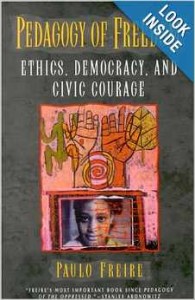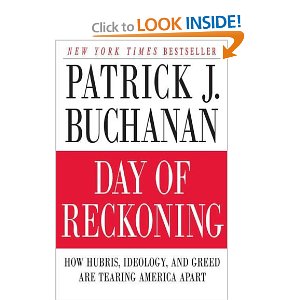 Extraordinary–Elegant in Concise Inisights and a Holistic Appraisal, March 18, 2008
Extraordinary–Elegant in Concise Inisights and a Holistic Appraisal, March 18, 2008
Steven Waldman
This is a very special book. The author has done an utterly superb job of original research and elegant concise representation of the nuances in belief, practice, and circumstances with respect to the matter of religion as confronted by the Founding Fathers, and especially Ben Franklin, John Adams, George Washington, Thomas Jefferson, and James Madison.
We learn early on that freedom of religion was originally designed to apply only at the federal level–only later, when the North pushed through the Fourteenth amendment, did this get grandfathered upon the states.
We learn throughout the book that the original evangelicals wanted separation of the church and state, and made common cause with the rationalists, both groups believing that individual liberty and freedom of personal conscience were the core values.
Midway through the book we are confronted by the author with the reality that the diversity of faiths existent today in the USA render meaningless and unachievable any thought of America being a Christian or even a Protestant nation–pluralism rules.
Religion was appreciated by the Founding Fathers for its generally good impact on civic morals. George Washington especially, in the Continental Army, demanded religious tolerance, authorized chaplains, encouraged officers and men to attend religious services, and generally communicated a sense that the American Revolution was a “holy war” with God standing firmly with the colonies against England and the Church of England.
The author provides concise but no less shocking accounts of the early religious wars in America, with torture and execution and jail being imposed on Quakers and Baptists, Protestants against Jews and Catholics.
We learn that both Jefferson and Franklin doubted divinity but respected Jesus for his moral code.
Adams considered Catholics the “whore of Babylon” and this resonates with more than one modern US evangelical who has endorsed John McCain.
We larn that the Great Awakening and the revivals spawned a general practice of questioning authority.
The author draws a clear connection between political liberty and religious freedom–the two were intertwined from the beginning of the revolutionary impulse.
George Washington was spiritual but not theological.
There are many gifted turns of phrase throughout the book. One that stayed with me: Jefferson saw God not as devine, but as a “brilliant wise reformer offering a benevolent code of morals.”
Madison held a dispassionate faith in contrast to the others. He also felt that one should err on the side of separation.
From page 192 the author lists and discuonts four liberal and four conservative falacies. Buy the book.
The conclusion is as elegant as the rest of the book: Separation is the root condition for nurturing the fullest possible religious diversity and vitality.
I put this book down with an intellectual, spiritual, and civic “WOW” in mind. Truly an extraordinary work, a very important work, a lovely piece of scholarship that is meaningful to every American and every immigrant would would be an American citizen.
Other books that are faith-related that I recommend:
God's Politics LP
The Left Hand of God: Taking Back Our Country from the Religious Right
Faith-Based Diplomacy: Trumping Realpolitik
The Complete Conversations with God (Boxed Set)
American Fascists: The Christian Right and the War On America
Tempting Faith: An Inside Story of Political Seduction
Dogs of God: Columbus, the Inquisition, and the Defeat of the Moors
DVDs I recommend:
Gandhi (Widescreen Two-Disc Special Edition)
Bonhoeffer
Tibet – Cry of the Snow Lion









